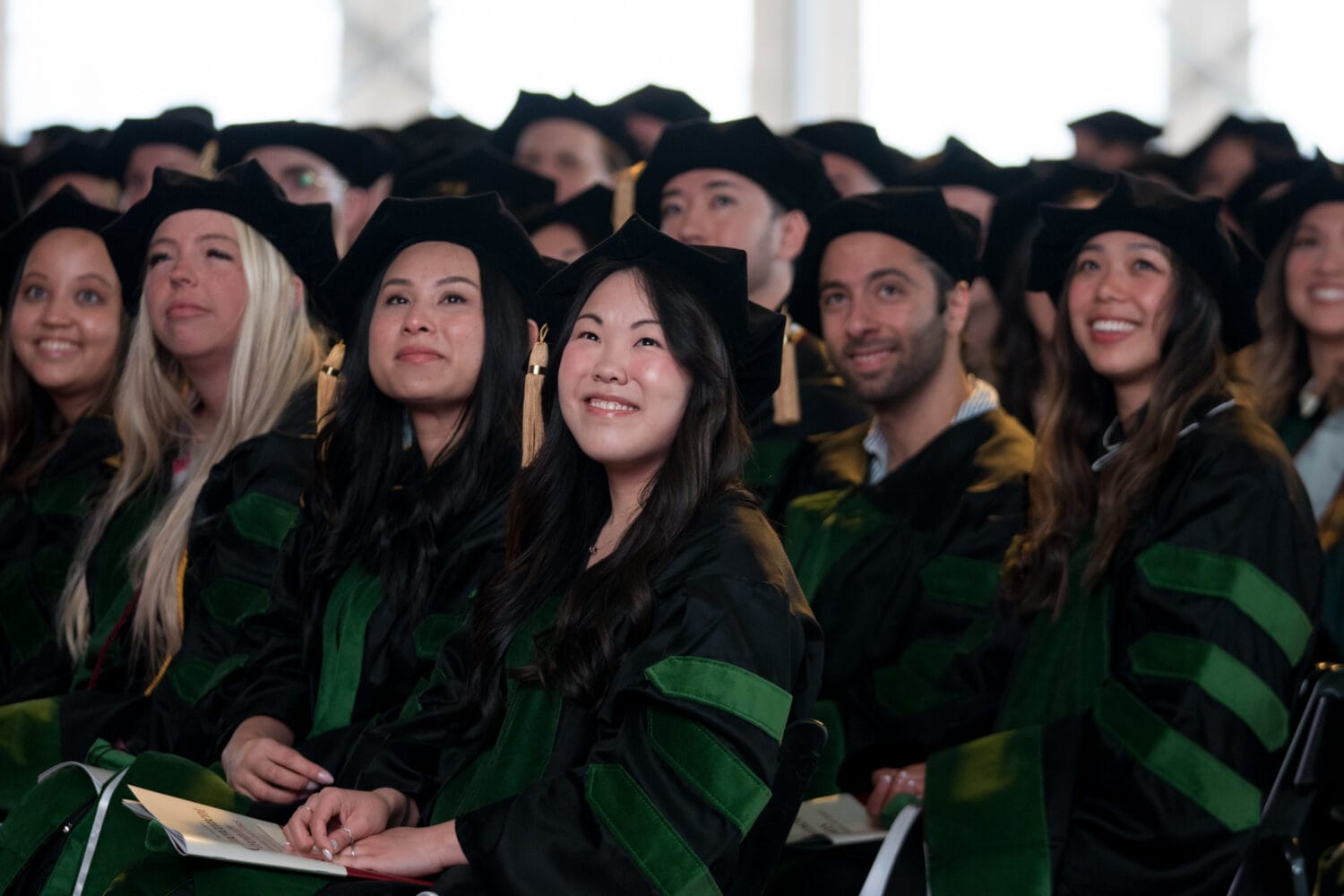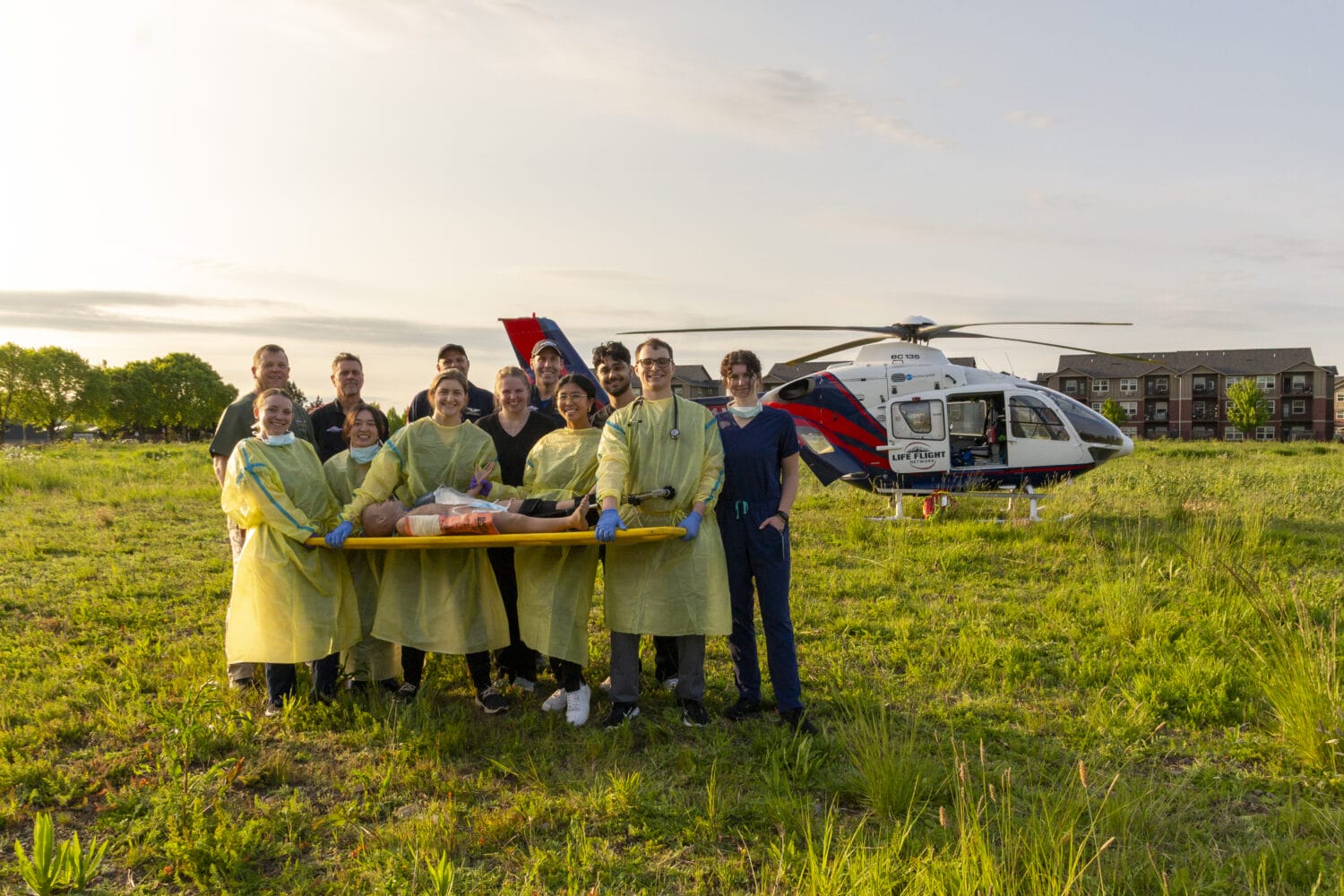Western University Opens Newest College of Veterinary Medicine
The nation’s newest College of Veterinary Medicine opens in August
2003 at Western University of Health Sciences in Pomona, California.
This is the first college of veterinary medicine to open in Southern
California and the first in the country in over 20 years. The new
college has a unique mission as it begins to train veterinarians to fill
the growing need for pet and animal care professionals in California.
”Our college will be guided by the same spirit of compassionate
caring for patients and families that has been the hallmark of our
university,” said Philip Pumerantz, president of Western University. He
adds, ”We did the research, found an unmet need for more veterinarians,
and in the entrepreneurial spirit that has been part of the foundation of
this university, we found the right people to help make this college a
reality.”
Dr. Shirley D. Johnston is the founding dean of the college and
the only woman dean of a veterinary college in the nation. Johnston
said, ”Our college is founded on commitments to student-centered
learning, a reverence-for-life philosophy, and strategic partnerships and
alliances.”
Grand opening festivities begin on Saturday, August 9 with a
reception and dinner celebration honoring the major donors who have
contributed to make the new college and its new campus building
possible. Dignitaries in veterinary education from California, the
nation and around the world will be in attendance.
The First Class
Classes will begin on Monday, August 11 with 86 students comprising
the charter class. Most of the class members are California residents,
but the balance come from seven other states.
Mirroring the national trend in student demographics, women
outnumber men in the class. Diversity is one of the many goals Western
University has in mind while serving one of the most diverse regions in
the world, and the college is proud to have admitted 10 Latino students.
Reverence for Life
The goal of the ”Reverence for Life” founding philosophy is to
engender compassion and respect for all living things throughout the
veterinary medical education experience. This will occur through:
– respectful interpersonal and interspecies interactions;
– the fact that animals will not be harmed in this curriculum; and
– the requirement that students master veterinary medical
principles and clinical skills using models before applying those skills
to living animals.
Groundbreaking and Support
University officials and leaders from the American Veterinary
Medical Association and the California Veterinary Medical Association
joined together to break ground in March 2002 to provide the College of
Veterinary Medicine with a new teaching facility designed to meet the
needs of the problem-based learning curriculum. The building has been
completed and is now occupied by the faculty and staff.
Major donors have provided much of the funding to help found the
college. Maddie’s Fund provided a grant of $1.25 million over five years
in support of the development of a new Maddie’s Shelter Medicine
Program. University Board Member Wen Chang and his wife Mei Lien Chang
pledged $500,000 to the new college. Hill’s Pet Nutrition and Banfield
the Pet Hospital have also provided leadership gifts, to be publicized
soon. The Leonard X. Bosack and Bette M. Kruger Foundation has provided
funding for the Veterinary Ambulatory Community Service, which is part of
the Clinical Skills curriculum.
WAVE
The College’s Willed deceased Animals for Veterinary Education (WAVE)
program gives pet and animal owners the opportunity to donate their
deceased animals to veterinary education at the university. The WAVE
program is the soul source of animal specimens used in the college’s
anatomy, surgery, and clinical skills courses. The exact use of the
donations is dependent on the donor’s wishes, the inherent value of the
animal and the respective legal restrictions.
All donations to the WAVE program must have died or been euthanized
due to serious illness or injury. Animals without owners that are
euthanized to combat over-population issues are not accepted. At
present, the WAVE program is in need of donations from wildlife species.
Accreditation
In April 2003, the American Veterinary Medical Association’s Council
on Education (COE) granted the Western University College of Veterinary
Medicine provisional accreditation status. This status may be maintained
for a period of up to five years, by which time full accreditation must
be achieved. The COE maintains oversight of program quality by reviewing
semiannual reports on compliance with accreditation standards, and by
conducting site visits, which will be scheduled at Western University in
the fall of 2004 and the spring of 2007.



